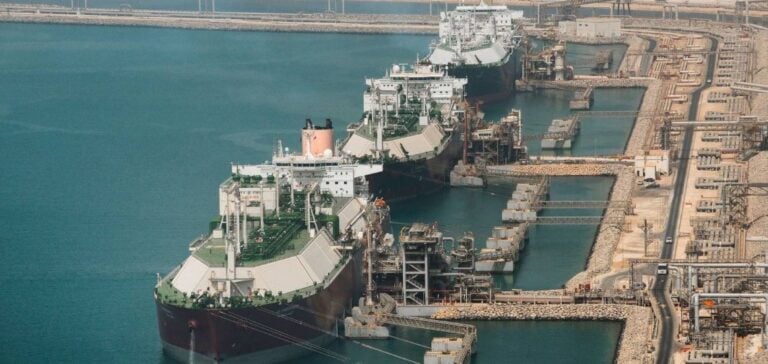Qatar, a major player in the global liquefied natural gas (LNG) market, is intensifying its relations with Japan to secure a lasting energy partnership. This week, Saad al-Kaabi, Qatar’s Minister of State for Energy Affairs, traveled to Tokyo to meet with executives from major Japanese companies, including JERA, Chubu Electric, Mitsui, Marubeni, and Kansai Electric, all consumers or partners in Qatari gas projects. The meeting aimed to explore opportunities for strengthening energy relations, as several LNG contracts between Qatar and Japan are set to expire in the coming years.
Qatar has long been one of Japan’s main LNG suppliers, but its share in Japan’s imports has decreased in recent years. In 2022, Qatari LNG accounted for only 4% of Japanese LNG imports, down from 12% the previous year. This drop is attributed to Japanese companies deciding to let several contracts with Qatar expire, totaling over 7 million tonnes per year, largely due to disagreements over contract flexibility and uncertainties related to Japan’s 2050 climate goals.
LNG Contracts Nearing Expiration
The late 2020s and early 2030s mark a crucial period for contracts between Japan and Qatar. Kansai Electric, for example, will see its 500,000-tonne-per-year contract expire in 2027, while JERA, Japan’s largest power producer, will reach the end of its 700,000-tonne-per-year contract in 2028. For Tohoku Electric, another buyer of Qatari LNG, the contract will end in 2030. Following the ministerial visit, some Japanese companies may consider renewing their contracts or signing new ones to stabilize their supplies.
According to Takayuki Nogami, chief economist at the Japan Organization for Metals and Energy Security (JOGMEC), Qatar could attract Japan by offering more flexible partnerships. However, Nogami noted that the success of these negotiations would depend on discussions around destination restriction clauses and contractual terms.
The Strategic Role of Qatari LNG for Japan and South Korea
Qatari LNG remains a strategic resource for Japan, a country heavily reliant on imports to meet its energy demands. Amidst geopolitical tensions and the energy transition, the two nations may strengthen cooperation, not only in LNG but also in sectors like renewable energy and hydrogen. Japan imported 293,598 tonnes of Qatari LNG in September alone, representing 5.4% of its total LNG imports for the month.
The Qatari minister’s Asian tour also included a stop in South Korea, where he met with South Korean Minister of Trade, Industry, and Energy, Ahn Duk-geun. Discussions focused on stabilizing LNG supplies and expanding cooperation to include renewable energy and hydrogen. With 8.6 million tonnes of LNG imported from Qatar in 2023, South Korea remains a major customer, though the country has recently diversified its sources, increasing imports from Australia.
Qatar’s North Field Expansion Project
To meet growing global demand and the energy needs of partners like Japan and South Korea, Qatar has launched a massive expansion of its North Field gas field. This initiative, divided into the North Field East, South, and West projects, is expected to boost Qatar’s LNG production capacity from 77 million tonnes per year to 142 million tonnes per year by 2030. With this expansion, Qatar seeks to strengthen its role in the LNG sector and provide Asian markets with alternatives amid geopolitical tensions.
Japan, in its quest for energy security during its transition to cleaner energy sources, could benefit from this expansion to diversify its supplies. However, adopting more flexible clauses and terms that address new climate goals remains crucial for Japanese companies.






















